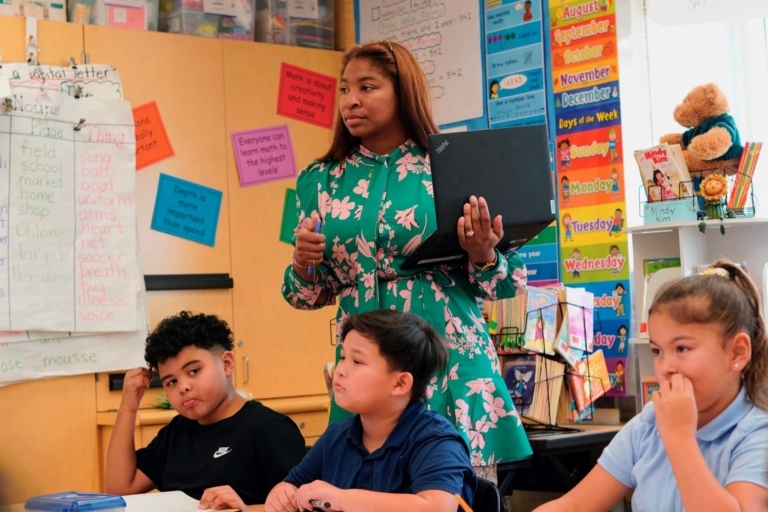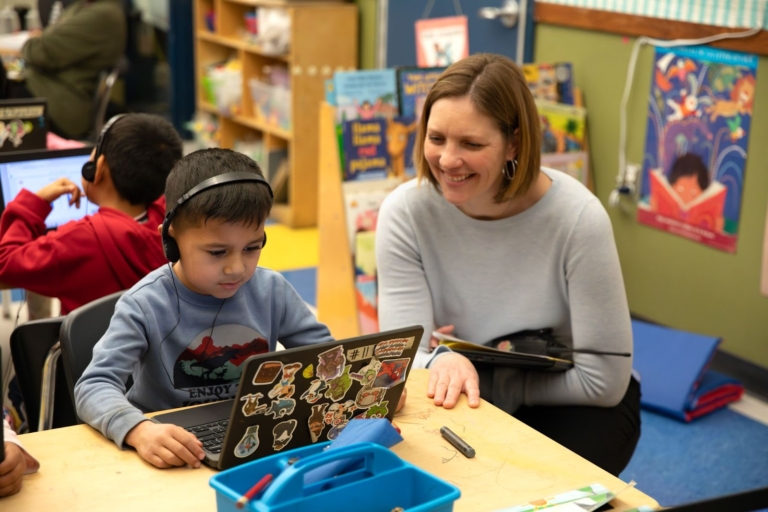Note: This story was originally published on the Chamberlin Family Foundation website. It has been modified to reflect a continuing initiative supported by the Chamberlin Education Foundation.
For WCCUSD principal Jawan Eldridge and his district colleagues, the pandemic pivot is only just beginning.
As they prepare for an academic year that will likely include both distance and in-person learning, Eldridge and his team at Peres K-8 are working to adapt their instructional methods while holding fast to their promise to deliver high-quality instruction for all students.
Fortunately for Eldridge, he and a growing group of district principals are now working together — with added professional support — to sharpen their plans for Fall and adopt the materials and practices that are considered vital to offsetting anticipated learning loss due to prolonged school closures.
As participants in the Chamberlin Education Foundation’s Instructional Leadership Community of Practice (the “CoP”), Eldridge and a group of WCCUSD principals will continue to receive best-in-class professional trainings, personalized leadership coaching, and, perhaps most importantly, dedicated time to share ideas with other principals facing the same challenge.
“[We] were used to a traditional sense of what school looked like,” Eldridge said. Now more than ever, he explained, principals need to adapt plans and model the agility and resilience that they expect of their teachers.
“This is going to open some space for some things that we hadn’t seen before.” Eldridge said.
Eldridge and the CoP principals now face a critical test of their schools’ preparedness and adaptability: Can they leverage the deep, structural changes they instituted last year to sustain high-quality teaching and learning this Fall?

Before the coronavirus outbreak, Eldridge was pursuing ambitious changes at Peres that he believed would dramatically strengthen teaching and learning across campus.
According to Eldridge, his experience in the Community of Practice the previous year had reinforced the importance of using high-quality curriculum — exactly as designed — to set a demanding academic bar for Peres students.
“It matters what you put in front of students. And it matters that your curriculum is aligned to the standards.” — Jawan Eldridge
In workshops from Instruction Partners, TNTP, and other education experts, Eldridge refined expectations for his teachers and for himself. He worked closely with Greg Dutton (a former principal, now Bay Area Dean at Relay GSE) who pushed his thinking with probing questions that encouraged Eldridge to take his instructional vision to the “next level.”
Throughout the 2019-20 school year, Eldridge led the Peres team through the adoption of three new high-quality curricula (EL Education, Illustrative Mathematics, and Amplify Science), the launch of weekly student data meetings, and an increase in one-on-one teacher support to keep student learning aligned to rigorous Common Core standards.
“It matters what you put in front of students,” Eldridge said as he planned the curriculum rollout. “And it matters that your curriculum is aligned to the standards.”
In the year ahead, Eldridge said, pursuing “next level” instruction will mean designing around COVID contingencies.
“We’re starting to try to plan behind the scenes,” Eldridge said. “How does [effective teaching] need to look with the social distancing? What do we need to have in place?”
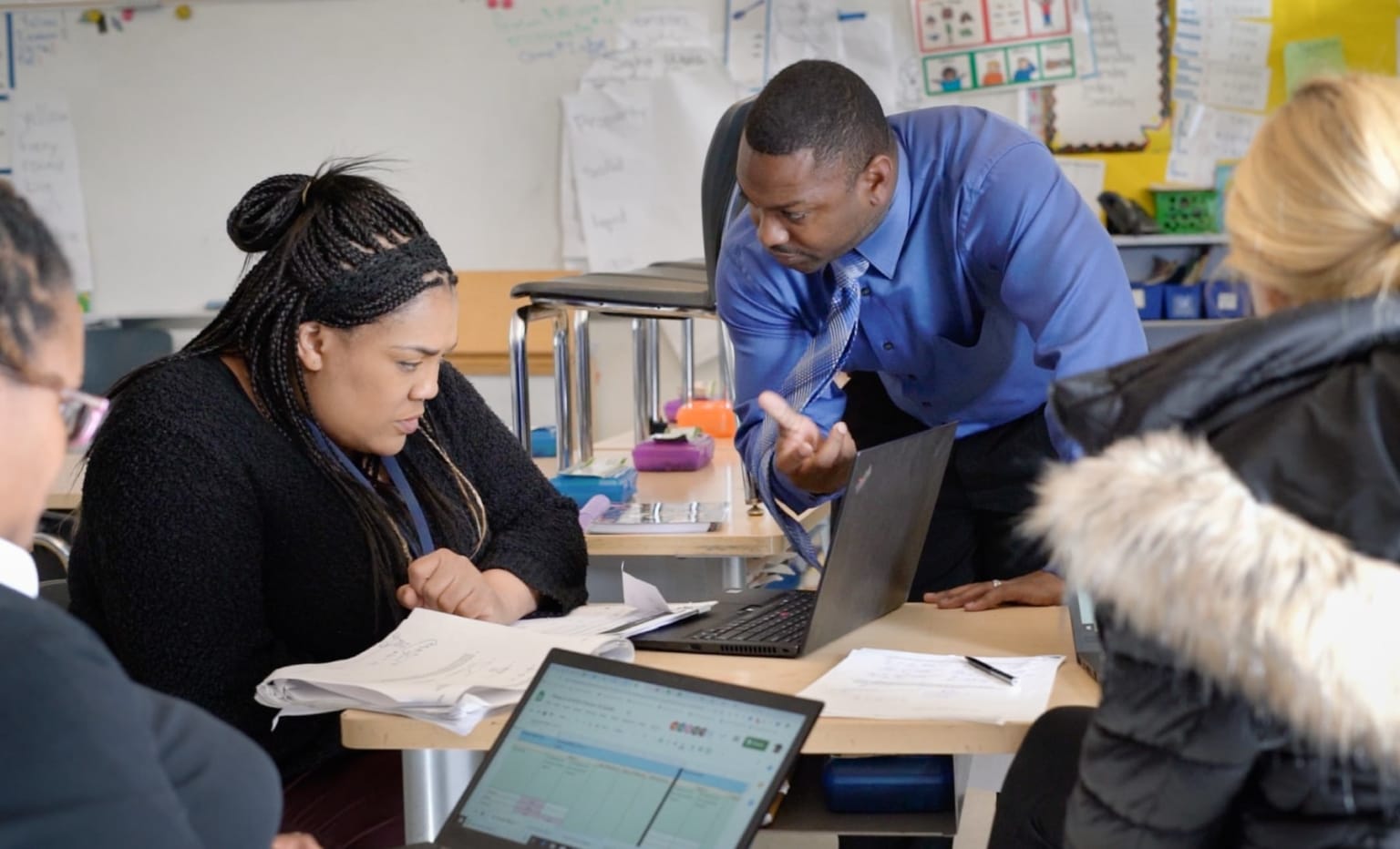
When the Chamberlin Education Foundation (then known as Chamberlin Family Foundation) launched its Community of Practice in 2018, it sought to support district principals to transform existing school systems and practices that were holding students back from reaching their full potential.
The program engaged principals at schools with over 85% student eligibility for free and reduced lunch in an effort to increase support for some of the district’s most under-resourced students.
Caroline Damon, the foundation’s Senior Program Officer who leads and organizes the CoP, was determined to offer an instructional leadership training program that would set district principals up for success based on proven K-12 education best practices.
Damon championed a research-backed approach that centered strong leadership as foundational to improving schools, particularly those that have struggled to enable students to reach grade-level proficiency.
“School turnaround starts with a visionary and highly committed school leader,” Damon explained. “Research has shown us again and again how critical the principal is to improving student achievement.”
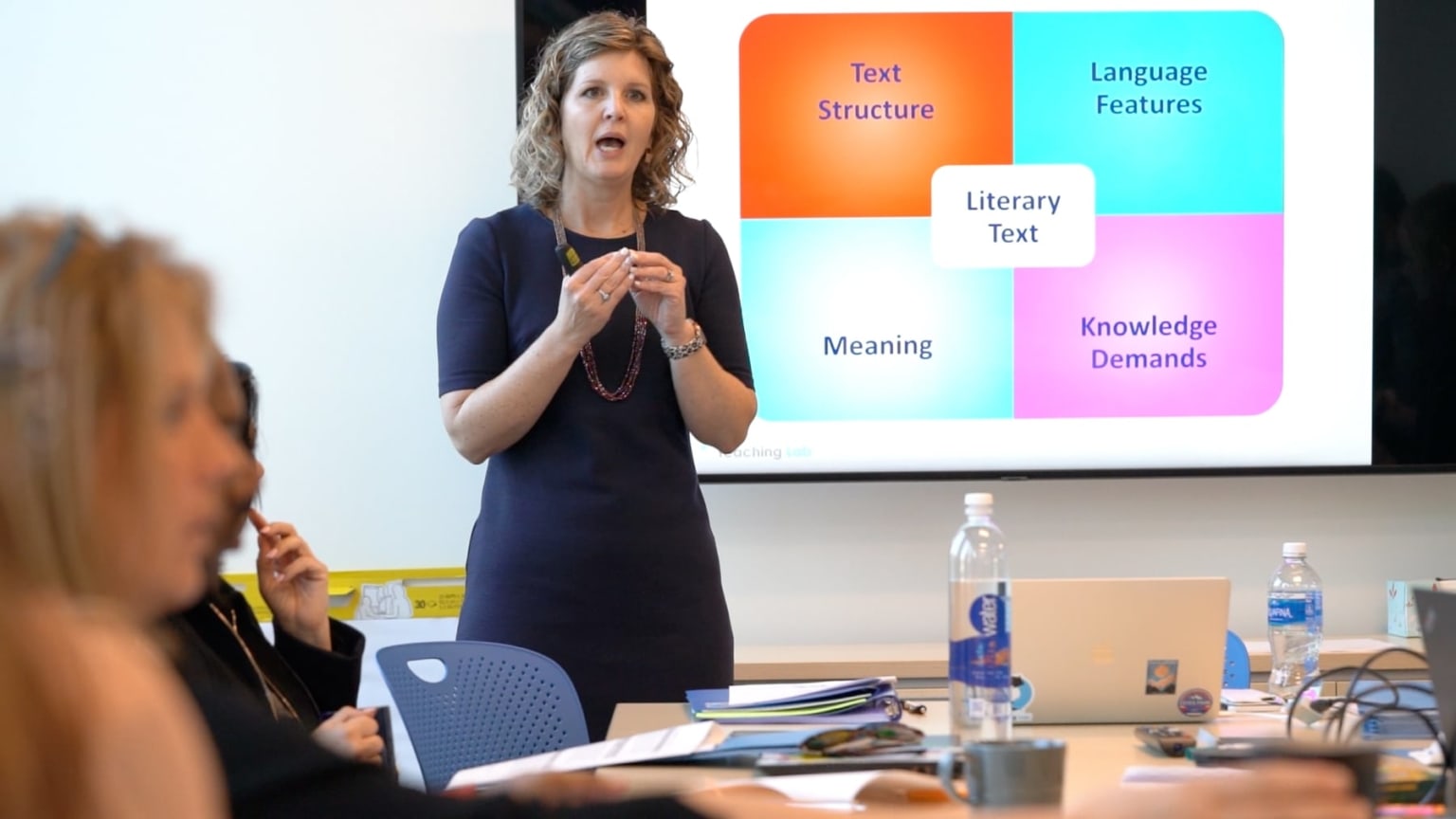
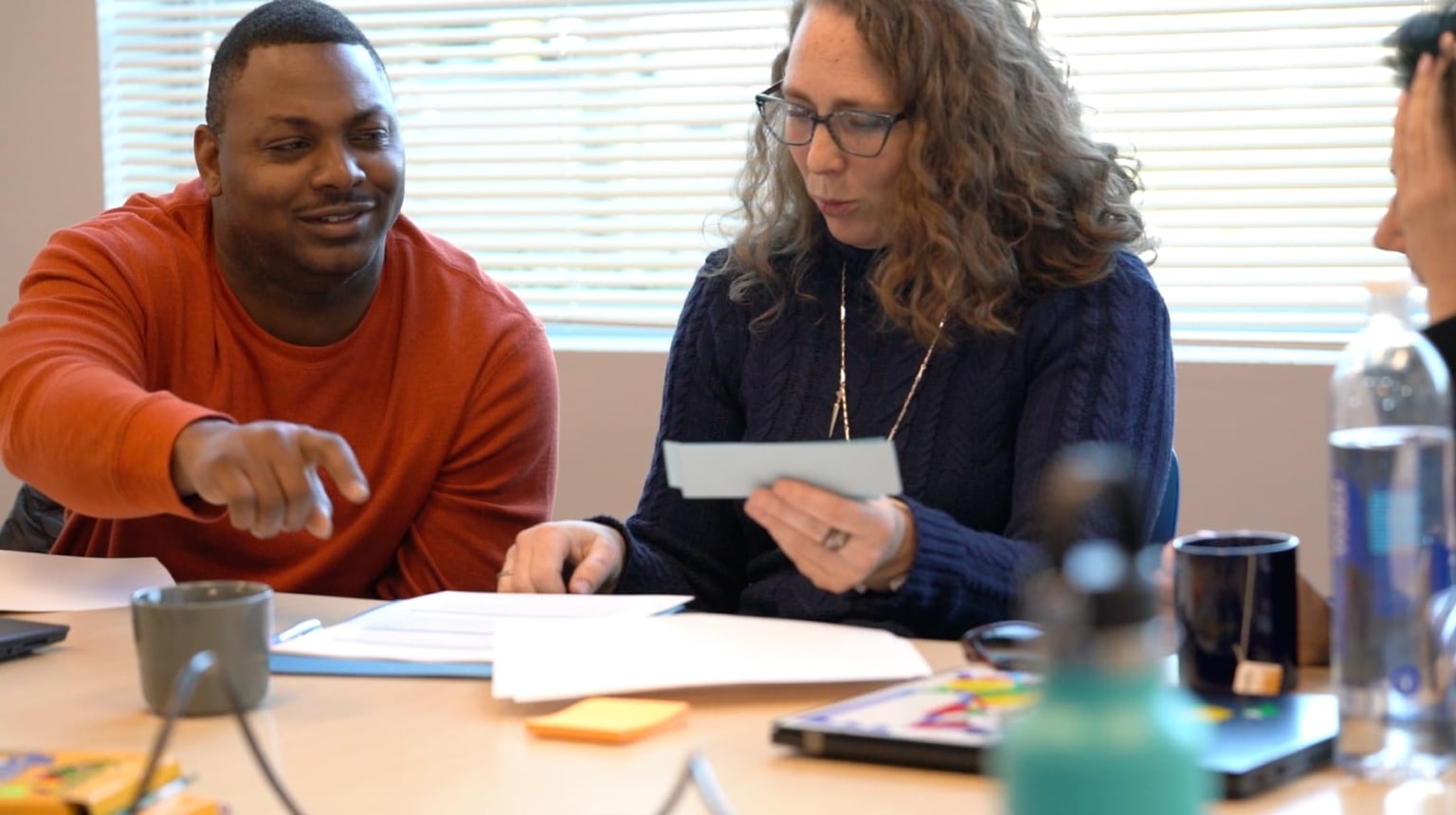
The foundation’s initial $350,000 investment in 2018, Damon said, had shown promise by encouraging high-quality curriculum implementation combined with stronger instructional guidance from principals.
Two years in, and after increasing total support to $700,000, every CoP school had adopted either a new and more rigorous math or ELA curriculum, or both. Teachers at supported schools like Peres, Damon said, are beginning to see the benefits for students.
“We saw an opportunity to deepen support, and tailor it to specific site-level needs so that leaders at each school could begin to tackle the complex task of improving student achievement,” Damon said.
As Eldridge and his instructional team scrambled to adapt to remote teaching at the end of the spring semester, Damon launched plans to keep the foundation’s support aligned with principal needs. She recognized that the CoP could do more to help principals navigate the sudden shift that the pandemic required.
Damon quickly modified the CoP’s summer offerings, shifting resources toward professional development that could help principals determine how to resume and accelerate student learning when — and however — school continues in the Fall.
“It is more important than ever that CFF supports educators to navigate how best to serve our community’s most vulnerable students.” — Caroline Damon
She also gained approval from foundation leadership to increase the CoP’s annual budget to match the expanded need. In 2020-2021, CEF will dedicate $1.2 million to support ten CoP principals and their teams — almost doubling the previous year’s commitment.
With increased support this summer, Eldridge and his fellow CoP participants will develop a distance learning plan that accounts for both full-time and intermittent periods of remote instruction.
To prepare, school teams are already exploring adaptations for the new English Language Arts curriculum they have adopted. More than 80 district teachers and principals are currently engaged in a three-week training offered by Teaching Lab to further implementation of EL Education.
The CoP will also support 65 district teachers and principals to participate in the annual Standards Institute (offered by UnboundEd, this year as an online conference) which will explore the Common Core through an equity lens, and provide guidance about standards-aligned distance learning.
“With the increased challenges of COVID-19 and uncertainties about the structure of school next year,” Damon said, “it is more important than ever that CEF supports educators to navigate how best to serve our community’s most vulnerable students.”
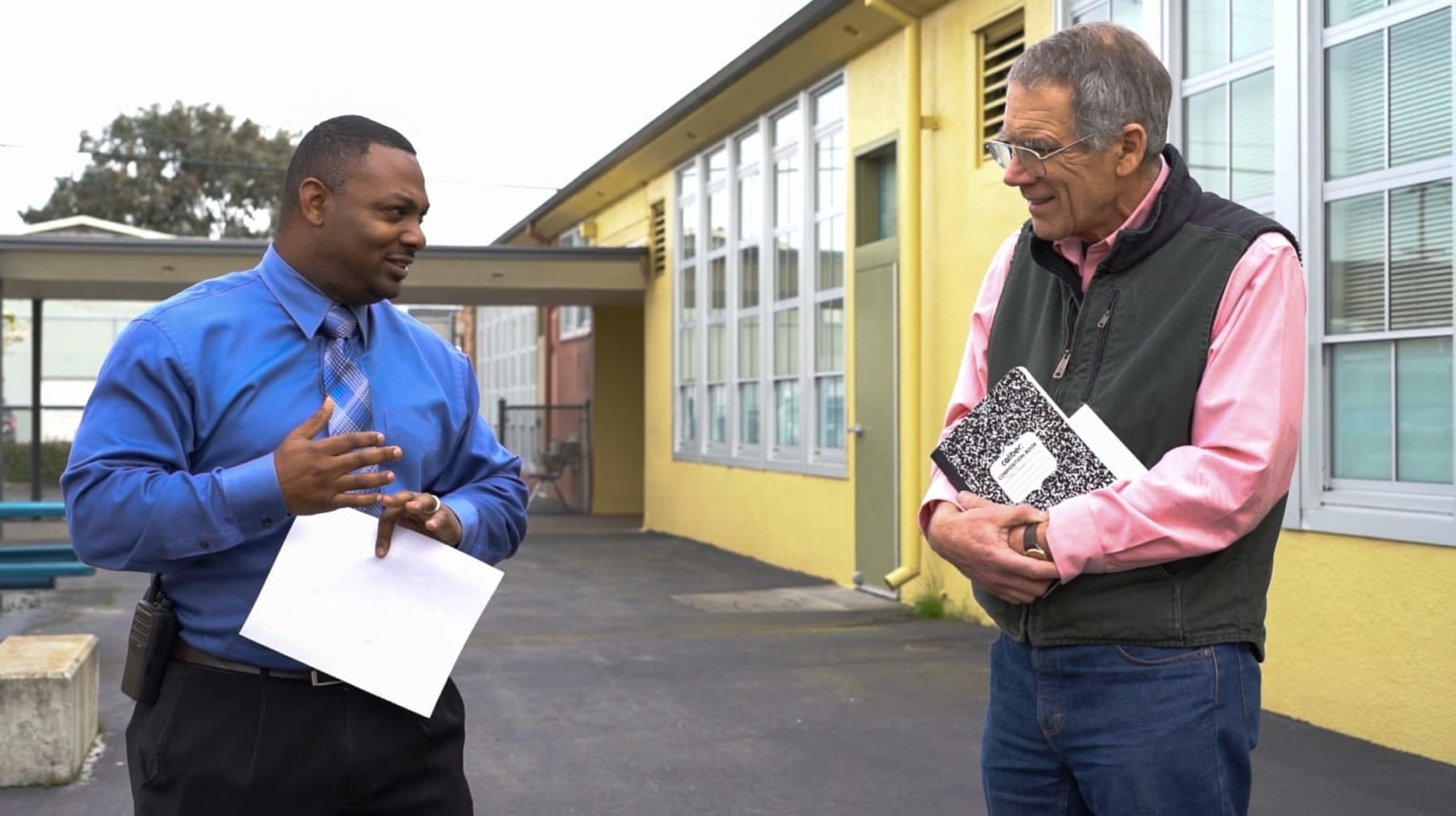
Despite the challenges ahead, Eldridge is considering “the unknown” as a chance to improve.
Eldridge is counting on his foundational planning, team cohesion, and strong network of support to guide his leadership and generate student success despite looming unknowns of the fall semester.
He’s also thinking long-term, and considering the possibilities that lay ahead.
“Every challenge brings opportunities, and this is an opportunity to reimagine how schools are being run and operated.”
“I think this is a great opportunity,” he continued, “for us to be able to think of new ideas and hear different ways that we could adjust education and still be impactful for all of our families.”
